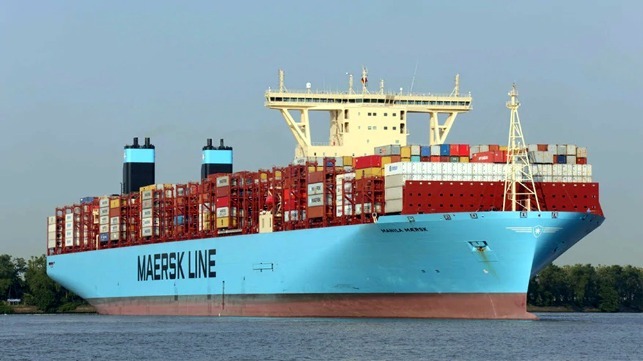Container Ships Expand Program to Study Oceans and Climate Change

Maersk, the global shipping company, is expanding its involvement in the global research efforts on weather patterns and climate change ongoing with the global Voluntary Observing Ship (VOS) program. The recorded data generated in the program helps meteorologists create more accurate weather and storm forecasts and will also be used in the creation of atmosphereocean models that will help scientists better understand climate change.
While many of Maersk’s vessels are already contributing to the VOS, the company is expanded commitment so that by the end of 2020 all of the company’s entire 300 vessel fleet will participating in the data collection efforts. Maersk hopes to make a significant contribution to improving the amount and quality of data available to the study.
“Climate change is one of the biggest challenges facing the global community, impacting our business as well as the societies and customers we serve and partner with in enabling trade,” said Aslak Ross, Maersk’s Head of Marine Standards. “We have an ambitious strategy to decarbonize our fleet of vessels by 2050 and as we execute this plan, we are proud to have our vessels and crews help researchers in gaining a better understanding of this key global challenge.”
While there are over 3000 ships are involved in the VOS program, overall participation has been declining in recent years due to the reduction in the global commercial fleet’s financial and crew resources. A typical VOS records and transmits observations manually, with a vessel crewmember reading data from instruments onboard the ship, or in some cases through automated weather stations (AWS). New technologies such as AWS and electronic logbooks, however, have led to an increase in the quantity and quality of observations from each vessel, which is sent to the various National Meteorological Services for use in weather prediction models and to monitor actual conditions at sea.

that matters most
Get the latest maritime news delivered to your inbox daily.
To obtain more data with higher precision, the first five Maersk vessels participating in the VOS program are equipped with a more advanced type of AWS, called the European Common Automatic Weather Station (EUCAWS). By the end of 2020, a total of 50 such stations are planned to be operational on Maersk vessels, providing the largest fleet of AWS from a single company. The EUCAWS system automatically collects data on atmospheric pressure, air temperature and relative humidity and transmits them hourly to designated research stations.
As part of its efforts with VOS, in the United States, Maersk is actively working with partner organization including the U.S. National Oceanic and Atmospheric Administration (NOAA) on a variety of environmental programs. These have included testing air quality and vessel stack emissions and whale protection programs on both coasts.
